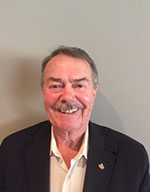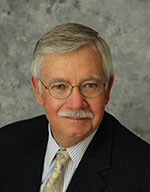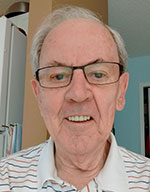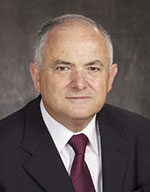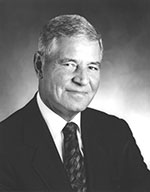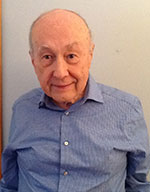In this special issue focused on Canada, it seemed only appropriate that the Roundtable we convened also reflect a Canadian bent. To that end, we invited the six living TEI presidents from Canada to discuss their tenures at the helm of the organization, including Vincent Alicandri (2008–09), David Burn (1986–87), Drew Glennie (2002–03), Reginald Kowalchuk (1991–92), David Penney (2011–12), and G. Maxwell Phillips (1976–77). Tax Executive Senior Editor Michael Levin-Epstein moderated the session.
Editor’s note: Drew Glennie was unable to participate in the Roundtable due to logistical reasons, but he offered the following comments: “From my perspective, TEI is the preeminent tax organization in Canada and the United States. TEI opens many doors that could be closed to others.”
Michael Levin-Epstein: David Penney, why don’t you kick off the proceedings?
David Penney: I was international president (of TEI) in 2011–12, and I’m retired. I retired in 2013 as General Motors’ tax head in Canada after twenty years. What I’m doing now—being retired is a wonderful occupation—but I’m very active in the local Rotary club, I’m the president-elect there and will be going to a Chicago conference later in the spring and generally enjoying that and my summer home.
Vincent Alicandri: I was the 2008–09 international president, and, like David, I’m retired. I retired December 31, 2012. During the last fourteen years of my working life, I was the vice president of corporate tax for Hydro One Networks Inc. Now I’m kept busy studying Italian, working out, and babysitting our grandsons (not all at the same time), and doing some traveling.
G. Maxwell Phillips: I was president in 1976–77, an active time in TEI. I am now fully retired at the tender age of 86; I think I’ve earned that. I’m enjoying a quiet life at home, basically. I haven’t been active in TEI affairs for the last few years. In fact, last year, I spent most of it in the hospital. But I’ve enjoyed my time with TEI, and I think it’s a fine organization.
Reginald Kowalchuk: I was international president of TEI from 1991–92. I retired from the Bank of Nova Scotia in June 2002 after serving as senior vice president, taxation, for the bank’s global operations in fifty-two countries. To me, retirement is a fine second career with many activities to enjoy, particularly traveling to unique destinations.
David Burn: I retired in 2001 as vice president of taxation at Nortel Networks. It, like my prior employers—Bank of Montréal, Massey Ferguson, and Scotiabank—was a strong supporter of my time invested in TEI. The late Mac McKie, Canada’s first international president, insisted I join the Toronto Chapter of TEI in 1969. The Chapter had seventy members then and now has in excess of 300. I recall there was considerable dispute over Mac’s nomination, as he had never chaired the Federal Tax Committee. Needless to say, the precedent-setting removal of that hurdle opened the door for many of his successors. My interest in TEI continues, and I have attended virtually every Annual Conference and Region 1 Conference since retirement.
Different Tenures, Different Times
Levin-Epstein: Let’s talk about your tenure heading TEI.
Phillips: I became president at a time when things were getting very interesting in Canada. Canada had had a tax act, which I think was about 145 pages long since 1949, and it was time to have it updated. A Royal Commission was formed in 1966 under the chairmanship of Mr. Kenneth Carter (the Carter Commission), and it came up with a bill which, in 1970, became law. The 145 pages became nearly 1,000 pages of complicated, new literature. We had to learn a completely new language. But as a result of that, we in Canada decided that we should talk to the Executive Committee of TEI and say, “Hey, guys, up until now you’ve only made submissions to the Treasury Department as it affected tax administration, not as it affected tax law. We have the unique opportunity of trying to influence, to what extent we can, the tax law in Canada. Please, can we go ahead with that aspect?” Well, eventually the Executive Committee listened to us and thought about it and said yes, go ahead. Thereafter, the Washington group also went to the Treasury Department on tax law problems. It grew the Institute significantly at that time.
In 1970, we had a Canadian conference in Ottawa of which I was asked to be the chairman, and it dealt extensively with tax reform in Canada. In 1971, I was at meetings where discussions took place about forming a chapter in Calgary, and, similarly in ’72, discussions took place about forming a Vancouver Chapter. So as you can see, it was a very active time. In 1974, Lee Hill, who was then international president, asked me to chair a committee to look at the workings of TEI, specifically the conferences and how we could get the membership more involved. One of the things I was able to recommend was that, up until then, being a vice president of a region had been a largely symbolic gesture appointed by the then-managing director. We recommended that as representatives of regions, they should generate interest within that region and stimulate it to the extent that the Institute would then know who in the region can be trained to become officers of the Institute. I think it worked quite well.
In 1976, when I was president, I was also a member of the Institute of Taxation in England. I thought it would be an interesting idea to see if they were interested in joining TEI, and I invited the then- president of the Institute of Taxation, a Mr. Reg Pickerill, to come and join us at the March conference in 1977. He was most impressed, and when I was next in London, he invited me to go to one of their meetings. The upshot of it was a bit of a lack of interest on the part of the UK in joining an American organization. But it was the first seed of TEI going international. I’m quite proud of that, actually.
Other than that, what did I do since then? I think I was the first non-U.S. citizen to be appointed to the commissioner’s advisory group in 1977. Since then, I decided I should fade into the background and let others take over. So, that’s where I am now, and I’d be interested to join in any discussion any others have.
Kowalchuk: I might add that it was Max who signed my TEI Certificate of Membership in 1976.
Penney: During my tenure, I had a number of objectives. One of them was what we called Vision 2020, which was a strategic plan review of TEI, and we came up with a comprehensive and well-formed, excellent plan from which the presidents picked and chose the things that they thought were relevant to them in their tenure, because it was rather extensive, long list of strategic and practical initiatives. (Actually, we hired an external consultant who was very skilled in managing these things, I must say at some expense—and it took a lot of time.) That was probably one of the largest items that I worked on during my tenure. I always like to point out that at the time, and I expect it’s still true now, TEI in Canada is without question clearly the preeminent tax organization, certainly for in-house practitioners. In a sense, it really doesn’t have any competition up here, so we really are it. The Toronto Chapter is the largest chapter in TEI, and I think it has been for a number of years, which I think is a tribute to the quality of the organization in Washington to make it that attractive to Canadians. Québec, in many respects, does its own thing; it has a very distinct culture. And the Montréal Chapter is TEI’s leader in the province of Québec, clearly, so TEI has a very significant presence up here, and it certainly did at the time I led TEI internationally. But, in particular, it’s a real feather in the Canadian TEI organization to periodically have an international president. I was certainly honored at the time and enjoyed my tenure thoroughly.
Phillips: David, if I could just interject, I was interested to note that the Montréal Chapter, of which I used to be president, is now governed by very intelligent ladies: president, vice president, everything. When I was president of the international position, I think we had one lady, and she was the tax manager of Hallmark Cards in Kansas City, and I don’t remember any other ladies at that level at that time. I think that’s a very positive aspect for the Institute.
Alicandri: Max, we’ve had a few international women presidents. At one time there was a potential for all the senior officers to be women. If you go to conferences and you look around now, I don’t know whether the male/female split is fifty-fifty, but it’s very close to that.
Phillips: That’s right. It’s changed significantly.
Penney: We’ve had several Canadian regional VPs who are female and did an exemplary job too, so that’s progress.
Phillips: It is progress, I quite agree. Hey, I’m the father of two daughters.
Alicandri: David, I don’t know if you intentionally left out your second interesting task force.
Penney: As a matter of fact, I’m going to leave it to you to describe that, because I did have two task forces, and the second one was as of much interest to me as the first one. But Vince headed it up, so, Vince, why don’t you describe it?
“Well, eventually the Executive Committee listened to us and thought about it and said yes, go ahead. Thereafter, the Washington group also went to the Treasury Department on tax law problems. It grew the Institute significantly at that time.”
—Max Phillips
Alicandri: I was the co-chair with Janice Lucchesi of the Chicago Chapter of the Global Tax Advocacy Task Force. This task force was charged with recommending methods and strategies to monitor, engage with, and influence other government organizations and regulators, including tax authorities in various jurisdictions as well as the Organisation for Economic Cooperation and Development (OECD), European Union, Securities Exchange Commission, Financial Accounting Standards Board, International Accounting Standards Board, and the United Nations. In addition, the task force was asked to address how TEI could best coordinate and manage advocacy for multijurisdictional issues, including tax treaties and transfer pricing. Being a co-chair of the Global Tax Advocacy Task Force was quite an experience, because the task force that we put together was essentially a worldwide task force with representatives from Canada, the United States, Europe, and Asia. The report that we came up with essentially contained recommendations for how the Institute could interact with these other organizations and do tax advocacy on an international level. The International Tax Review in 2012 selected the Global Tax Advocacy Task Force and TEI as the third-most influential tax group in the world. That really did something to cement TEI’s reputation as an international organization. Can I talk about my term as president?
Levin-Epstein: Please.
Alicandri: Well, you asked what was going on during my term as president, and I had the “pleasure” of being TEI’s president in 2008, when the world economy was going to hell in a handbasket. The world economy was, let’s say, falling apart. In retrospect, a few documentaries that I’ve seen stated that we came very close to having a catastrophe that would make the Great Depression look like a walk in the park. Fortunately that didn’t happen, but it did present a lot of challenges during that year. The only effect that it had on the organization at that time was that the attendance at the conferences went down, because companies were just hunkering down and slashing budgets and reducing staff.
However, one thing that did not stop, either in volume or in quality, is the submissions that were made during that year. I don’t know if you’re aware, but TEI has a committee structure made up of TEI members; for example, there’s the U.S. Tax Committee that deals with the U.S. federal tax issues, the Canadian Income Tax Committee that deals with Canadian federal tax matters, and the European Tax Committee that deals with European tax matters, and needless to say, all three have to interact with each other when it comes to making submissions. The members of these and other committees, such as the State and Local Tax Committee, etc., just kept on drafting submissions that were ultimately approved by the Executive Committee, and we just kept on going.
“Region 1 has always acted as a region and not a separate country.”
—David Burn
Burn: Region 1 has always acted as a region and not a separate country. We like to think that we punch above our weight, however. The movement to have a separate Canadian headquarters in the ’70s was resolved with some procedural changes and a dedicated staff member. In my year, we had the famous 1986 tax bill to absorb and provide our input upon, and I still have U.S. President Ronald Reagan’s letter advising he could not speak at the Midyear. Concurrently, a critical submission was made on California’s Unitary Tax plan, and we were able to develop a submission that avoided a serious clash within the Institute.
In 1986, TEI was languishing in the spartan offices in Rosslyn, Virginia, but the membership supported a move nearer to IRS headquarters—a risky venture, as we had to carry two lease payments for several months at a time when the TEI coffers were strained and the real estate market was in bad shape. We reduced the number of board meetings by one in 1978 to reduce the financial and travel burden on board members. Also during the year, we inaugurated the separate 501(c)(3) Education Fund, thanks to the work of then-TEI Secretary Larry Langdon. How successful that has been!
Kowalchuk: I was senior vice president of the Institute when an Executive Committee meeting was advised that the executive director had submitted his resignation. This was unsettling news to me because I was the incoming TEI president and would be responsible for identifying and hiring a new executive director. A search committee, led by Chuck Rau, was struck. They identified candidates for me to interview in Washington, D.C. These candidates included Michael Murphy, the deputy commissioner of the IRS, who was seriously considering taking an early retirement with a view toward securing a position with PricewaterhouseCoopers in Atlanta, Georgia, his targeted retirement locale. I started discussions with Michael (the last of the candidates), asking him to forgo taking up a position with PwC, emphasizing his suitability as the executive director of TEI. After considerable “arm-wrestling,” he agreed, and we then proceeded to negotiate and agree to the terms of his contract. I then had to present the “draft” contract to TEI’s board of directors for their acceptance and confirmation. Michael signed on for a five-year term, which was followed by a second five-year term before he retired to Atlanta.
The Benefits of TEI
Levin-Epstein: Let me ask all of you: If some tax practitioner in Canada came up to you and said, “Should I join TEI?” what would you say to them? What would be the benefits of them joining TEI from your viewpoint?
Phillips: If he’s a tax practitioner, he’s not allowed to join TEI (chuckles)—unless he’s the tax director or primary person in tax in a corporation. If he’s in private practice, he’s not allowed to be a member.
Levin-Epstein: I meant it in the larger sense.
Phillips: We do encourage people who are interested in tax to become members, providing they meet the basic rule.
“I started discussions with Michael Murphy (the last of the candidates), asking him to forgo taking up a position with PricewaterhouseCoopers in Atlanta, Georgia, emphasizing his suitability as the executive director of TEI.”
—Reg Kowalchuk
Levin-Epstein: Right.
Penney: I think over time—and I think Max was in a time when there was an element of more exclusivity to membership—over time it really came down to that, if you were in a corporate tax department and you had five years of experience in tax specialization, you would be eligible to join TEI, which had an enormous impact on the membership of TEI. I think we’re around 7,000 members now and have been hovering there for a number of years. We would have been nowhere near 7,000 if membership had been exclusive to the management or senior management of a tax department. I think the organization has benefited considerably, in many ways, by being more than just a meeting, networking organization for more senior people, which I expect it probably kind of was.
Phillips: Years ago, yes, right.
Penney: It has become as much an educational organization, an advocacy organization.
Phillips: Yes, you’re right.
Penney: The educational component of TEI is obviously critical to its longevity and its size and its significance in the tax community now.
Phillips: I agree.
Alicandri: As Max said, if you’re in public practice or in government, then you really aren’t allowed to join TEI. It’s really an organization of corporate tax professionals, and as a corporate tax professional, it’s not like being in an accounting firm or a law firm, where you can walk into the next office and bounce ideas off another tax practitioner. You’re essentially in your own corporate environment, and one of the benefits of joining TEI is that you establish contacts with other tax professionals in other corporations. You network with them, you keep abreast of tax changes, you keep abreast of administrative changes by the tax authorities, you have the opportunity to affect tax legislation and administrative practices, and you also get the opportunity to hone your own professional skills, both tax and non-tax-writing skills if you’re drafting submissions, leadership skills, public speaking, etc. I know when I first joined TEI, I can remember going down to a conference in the United States, in Washington, and being on a panel talking about, of all matters, Ontario capital tax, which has to be one of the most boring subjects in the world. I tell you, I had sweat coming down from my brow, and from that experience I grew into someone who felt very comfortable speaking in front of hundreds of people. That I attribute to the experience that was provided to me and the opportunities provided by TEI. Have I left anything out, gentlemen, as to why someone should wish to join TEI?
Penney: I’d just reiterate what Vince has said. I think we all experienced a lot of personal and professional growth as a result of the opportunities we were afforded in TEI. We were obviously all very lucky, and I say “lucky” genuinely. I think there’s an element of luck in it that we were able to get to the top position in TEI, which is, in some respects, no mean feat. When you get there, you are very fortunate to have made it.
Alicandri: There’s probably another reason why people should join TEI, and that’s that from what I’ve seen in corporations in which I was responsible for their tax matters, your employer expects you to be well connected within the tax community, both with other corporations and with the tax authorities. It is neither sufficient nor prudent to just sit in your office and do your work without any contact with other tax professionals other than your tax advisers.
Phillips: It’s somewhat unnerving, but rather in many ways comforting also, to be able to walk into the office of the commissioner here in Canada and speak on equal terms. That’s what TEI gave to a lot of us, I think.
Penney: Absolutely. I know the tax authorities up here; there’s no question at all being a senior person in TEI was an entrée into situations that you wouldn’t otherwise easily get.
Levin-Epstein: Let me ask you: I don’t know if the current president, Sandy Macfarlane, has asked you for advice, but if he were to do that, how would you advise him as to what kind of things he should be looking for or doing, or surprises that might come his way? What advice would you, as a former international president, give him?
“One of the benefits of joining TEI is that you establish contacts with other tax professionals in other corporations. You network with them, you keep abreast of tax changes, you keep abreast of administrative changes by the tax authorities, you have the opportunity to affect tax legislation and administrative practices.”
—Vince Alicandri
Alicandri: There are some issues that the organization has to keep working on, where the work will be a never-ending journey. Issues such as getting greater involvement from the chief tax officers and getting more members to volunteer in administrative positions in their chapters are examples of such issues. I don’t think that TEI has a problem at all in attracting members, but the world is changing quickly, and the members need a little bit more convincing to become involved.
Phillips: One question I have is, is the institute experiencing any resistance to the reasonably high price that has to be charged to attend one of the major conferences now? Because they’re quite high—at least I found them so.
Alicandri: I don’t know if we’re experiencing any resistance to conference fees, but when I compare the conference fee for an Annual Conference or a Midyear Conference in the United States, I think it’s $600 to $700 dollars. To attend an equivalent tax course in Canada through other organizations might cost you several thousand dollars, just for the fee. I really don’t think the fee has ever been a problem; the greater expenses are the hotel, flight, and the associated trip expenses. I think tax professionals fight a never-ending battle to essentially prove that you’re adding to the bottom line of the company. To be able to do your job, you need to attend these conferences; they’re not just boondoggles. I can remember a treasurer in one of my former companies essentially saying, “Oh, you’re going to another boondoggle,” and I told him, “No, I’m actually attending those tax sessions, and it’s not a boondoggle.” But it does become a never-ending battle. However, I must say that, for the most part, my former employers, particularly Hydro One, were very supportive of my TEI involvement.
Penney: I would probably provide two pieces of advice, and they fit together and fall along what Mac was saying—although I think Vince is right when he says a lot of these conferences would cost $2,000 if you went to them, and TEI is $700 or $800 or whatever it is, but it gets pretty expensive with the flight and the hotel. First of all, I would suggest to them—and I think it’s been recognized, but I put a real force on it—that there are a number of constituencies now in TEI. It isn’t a homogeneous thing. You’ve got the chief tax officers, you’ve got the managers within the tax department, you’ve got relative entrance-level people, and you’ve got people who are in their sixties and people who are in their thirties. They look and relate to the workday world in different ways. I’d be really sensitive about breaking down what TEI offers to try to keep targeting the different constituencies, because they’re just not all interested in going off to do the same things. In concert with that, which would more address the cost involved, there are several regional conferences, and one of them is in Canada, and I think regional conferences are very cost-effective. They’re usually much closer to home, and they have local presenters, and I think TEI Washington should really take a look at supporting the regional conference-type venue with the idea of attracting a lot more TEI members. If only five or six or seven hundred, maybe 600, go to one of the big conferences that’s put on by Washington, that’s not a very high percentage of TEI members, and it’s a lot of the same people that go to both. We’re not reaching, I don’t think, a large proportion of TEI’s membership to go out and get together other than at the chapter level. I think the way to do that is to ramp up the regional conferences, which I think can probably be run in smaller venues. I think there can be an opportunity to involve a lot more TEI members if they really focused on that.
Kowalchuk: I recall the resistance and budget constraints to attend TEI conferences and meetings. One had to find a way to prevail in order to establish and maintain a supportive network.
Alicandri: Both the chapters and the regions have done an outstanding job over the years of providing educational opportunities for their local members, and maybe one of the reasons that the level of attendance at the national conference in the United States is down is because the chapters and the regions are doing such a good job.
Penney: Even at the chapter level, some of the programs, such as the Toronto program, are really very good over the course of the year. And I know probably not too many people from Montréal go off to the national conferences—they, too, have a really good program in the course of a year.
“There are a number of constituencies now in TEI. It isn’t a homogeneous thing.”
—David Penney
Alicandri: Calgary and Vancouver do as well.
Penney: There’s only four chapters here for the whole country, and they’re probably, except for Vancouver, a little bit larger chapters, so they have the wherewithal to do some of these things that some of the chapters in the States that aren’t that large may not have the opportunity to do. I think I’d be focusing more on the smaller (conferences) than the big ones. The big ones are very expensive.
Kowalchuk: However, these meetings are essential to establish and maintain a supportive network.
Burn: TEI was for many years opposed to any involvement of practicing lawyers or accountants in our meetings other than as panelists. I think it was a major initiative of Reg Kowalchuk and Mike Murphy to see the sponsorship of the Tax Executive Institute and then the various levels of financial support for our conferences together with firms having exhibits at our major conferences.
Levin-Epstein: I want to give you all a chance to say anything you want to add that you think the readers of the magazine would be interested in knowing from your perspective.
Penney: My final word would be that I was very fortunate to be the international president, and I had almost every little leadership position that you could think of, and I don’t mean “little” in a small way. I had chapter president and the vice president. I did all of those jobs, and I got something out of every one of them. As the saying often goes, I put a lot into it, but I got a lot more out of it than I ever put into it. I think I can clearly say that TEI was the highlight of my career.
Burn: On many occasions I heard U.S. members say they wished they could develop the same working relationship that TEI has with both Finance and Revenue with the U.S. counterparts.
Alicandri: I was going to say something very, very similar to that. I would really encourage our members to get involved, because, as David says, it doesn’t matter how much work you put into it, you get much more out of it.
Phillips: I think we could all recognize that. It’s been a wonderful part of my life too, and I would recommend it to anybody who is interested in the taxation area to get involved in a group like TEI. As they say, you get out of it much more than you’ll ever have to put into it.



